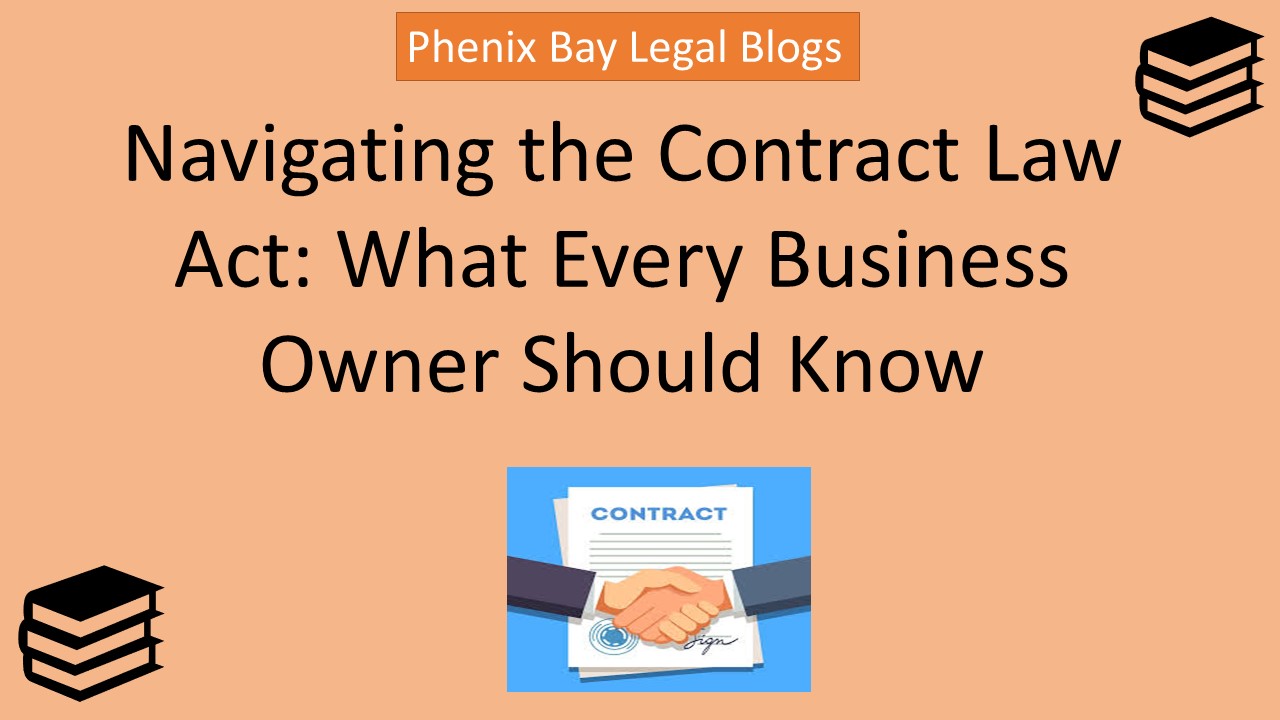
Navigating Contract Law for Business: Key Insights for Owners
Learn the essentials of contract law for business owners, including contract terms, legal obligations, and remedies for breaches. Ensure legally binding agreements.
Navigating the Contract Law Act: What Every Business Owner Should Know
In the world of business, contracts serve as the backbone of relationships, transactions, and collaborations. From small startups to large corporations, no company can operate efficiently or securely without legally binding agreements. Contracts ensure that parties know their obligations and rights, providing a framework to resolve disputes should they arise. For any business owner, understanding the basics of contract law is crucial, as even a simple oversight in an agreement could lead to significant financial and legal consequences.
This article delves into the fundamentals of contract law, with a focus on why clear and legally binding agreements are indispensable for business owners. We will explore the essential components of a valid contract, the importance of specificity and clarity in contract terms, common pitfalls, and legal remedies for breaches of contract. Additionally, we’ll examine how modern businesses can use contract law to their advantage.
- The Importance of Contracts in Business Operations
In any commercial setting, contracts serve multiple purposes:
- They set clear expectations between parties.
- They outline rights and duties.
- They provide legal protection in case something goes wrong.
From employee agreements to vendor contracts and service-level agreements (SLAs) with customers, businesses enter into contracts daily. Without well-drafted contracts, businesses expose themselves to potential litigation, misunderstandings, and financial losses. A contract helps parties:
- Specify timelines and deliverables.
- Allocate risk between parties.
- Ensure compliance with applicable laws.
For business owners, ensuring that all agreements are well-constructed, legally sound, and clearly define each party's responsibilities is essential to avoid future disputes.
- The Fundamentals of Contract Law: What Constitutes a Valid Contract?
Understanding the essential components of a contract is the first step in mastering contract law for business. In most jurisdictions, a contract is legally binding if it satisfies the following elements:
- a) Offer
An offer is the proposal made by one party (the offeror) to another party (the offeree). The offer must be clear, concise, and communicated. For example, if a company offers to sell 100 widgets for $500, that is a clear offer. However, if the terms are vague, like "selling widgets at a fair price," the contract could be unenforceable due to ambiguity.
- b) Acceptance
Acceptance occurs when the offeree agrees to the terms of the offer without modifications. Acceptance must be unequivocal and communicated back to the offeror. Any change in the terms or conditions is considered a counteroffer, not an acceptance. For example, if a supplier offers to sell goods for $500, and the buyer accepts this offer via email, a valid acceptance has occurred. But if the buyer asks for a reduction in price, it becomes a counteroffer.
- c) Consideration
Consideration refers to something of value exchanged between the parties, which can be monetary or a service. For a contract to be enforceable, each party must receive something of value. This mutual exchange distinguishes a contract from a gift. In business contracts, consideration might be goods, services, money, or even refraining from doing something (forbearance).
- d) Intention to Create Legal Relations
Both parties must intend for the agreement to be legally binding. In a business setting, the presumption is that agreements are intended to be enforceable unless explicitly stated otherwise (such as in non-binding letters of intent). Personal or social agreements, on the other hand, often lack this legal intent.
- e) Capacity
Both parties must have the legal capacity to enter into a contract. This means they must be of sound mind, not minors, and not under the influence of substances. A contract with someone who lacks the capacity can be declared voidable.
- f) Lawful Purpose
A contract must have a lawful object. If a contract requires illegal actions, such as committing fraud or violating regulatory requirements, it is void and unenforceable.
- g) Certainty of Terms
The terms of the contract must be clear and specific. Vague terms or conditions can lead to disputes and render the contract unenforceable. For example, a contract that says "we will pay you what we feel is fair" lacks the certainty required to hold up in court.
- The Significance of Clarity and Specificity in Business Contract
The clarity of the terms in a contract cannot be overstated. Vague or ambiguous contracts are a recipe for disputes, and courts often interpret unclear terms against the party who drafted the contract (a concept known as "contra proferentem"). Here’s why clarity is vital:
- a) Avoiding Misunderstandings
When terms are vague, parties may interpret them differently, leading to disputes. A clear contract leaves little room for misinterpretation and sets defined expectations for both parties.
- b) Enforceability
A contract with ambiguous or uncertain terms may not be enforceable in court. Courts are reluctant to enforce contracts where critical terms, such as price or delivery schedule, are unclear or incomplete.
- c) Reducing Risk
By having clear terms, businesses can reduce the risk of litigation. For example, specifying in detail what constitutes a “breach of contract” and the remedies available can help prevent disagreements from escalating into costly lawsuits.
- Common Pitfalls in Business Contracts
While drafting contracts may seem straightforward, many business owners make common mistakes that lead to costly disputes. Here are some key pitfalls to avoid:
- a) Not Putting It in Writing
Oral contracts are enforceable in some cases, but they are difficult to prove. For any significant transaction or agreement, putting the terms in writing is crucial for legal clarity.
- b) Failure to Address Contingencies
What happens if something goes wrong? Contracts that fail to address contingencies like delays, force majeure events, or non-performance may leave parties scrambling for solutions when unforeseen circumstances arise.
- c) Inadequate Dispute Resolution Clauses
Without a well-drafted dispute resolution clause, parties might have to resort to expensive litigation. Including arbitration or mediation clauses can help resolve disputes more quickly and affordably.
- d) Omissions in Scope of Work
Especially in service contracts, failure to clearly define the scope of work can lead to disagreements over deliverables, leading to claims of non-performance or under-delivery.
- e) Assuming Standard Terms are Sufficient
Business owners often rely on template contracts without tailoring them to specific situations. While templates can be useful, they should be customized to fit the unique needs of each agreement.
- The Role of Legal Remedies in Contract Law
Even with a well-drafted contract, disputes can arise. Understanding the legal remedies available for breaches of contract is essential for protecting your business’s interests. Remedies can be classified into two main categories:
- a) Damages
Monetary compensation is the most common remedy for a breach of contract. The goal is to put the injured party in the position they would have been in if the contract had been performed. Damages can be:
- Compensatory Damages: Covering direct losses and costs resulting from the breach.
- Consequential Damages: Covering losses indirectly caused by the breach.
- Liquidated Damages: Pre-determined amounts stated in the contract that the breaching party must pay.
- b) Specific Performance
In some cases, monetary damages may not be sufficient. The court can order specific performance, requiring the breaching party to fulfill their contractual obligations. This remedy is common in contracts involving unique goods or property.
- c) Rescission and Restitution
Rescission cancels the contract and restores the parties to their pre-contractual position, while restitution ensures that any unjust enrichment resulting from the contract is returned.
- d) Injunctions
An injunction is a court order preventing a party from doing something (prohibitory) or requiring a party to do something (mandatory). Injunctions can be used to stop breaches or enforce specific terms of the contract.
- Using Contracts to Protect Your Business Interests
A well-drafted contract can be a powerful tool for managing business relationships and safeguarding your interests. Here are some practical tips for business owners:
- a) Tailor Contracts to Specific Transactions
Every business deal is unique. Avoid the temptation to use a one-size-fits-all approach. Tailor each contract to reflect the specific terms, conditions, and risks associated with the transaction.
- b) Use Clear, Precise Language
Ambiguity is the enemy of good contracts. Make sure the language is straightforward, especially when dealing with payment terms, deadlines, deliverables, and dispute resolution procedures.
- c) Regularly Review and Update Contracts
Laws and regulations change, as do business needs. Regularly review your contracts to ensure they are still relevant and legally compliant.
- d) Include Confidentiality Clauses
In today’s competitive environment, confidentiality clauses (also known as non-disclosure agreements or NDAs) are essential in protecting sensitive business information from being misused by partners, employees, or vendors.
- e) Consult Legal Counsel
While business owners may be able to handle the basics of contract drafting, consulting a legal professional ensures that your agreements are legally sound and enforceable.
- Conclusion: The Power of Well-Drafted Contracts
In the fast-paced world of business, contracts are indispensable tools for managing relationships and mitigating risks. By understanding the fundamentals of contract law and ensuring that your agreements are clear, specific, and legally binding, you can protect your business from unnecessary disputes and costly litigation.
Business owners should never underestimate the importance of a well-drafted contract. Whether you’re hiring an employee, securing a vendor, or negotiating a major business deal, having legally sound contracts in place is the foundation of a successful, sustainable enterprise.
For businesses navigating complex legal landscapes, consulting with legal experts like Phenix Bay Legal can help ensure that your contracts not only comply with the law but also strategically protect your business interests.This in-depth understanding of contract law highlights its critical role in business operations. Clear, precise, and legally binding agreements are the cornerstone of avoiding disputes, protecting interests, and ensuring smooth business transactions.
Need assistance drafting a contract for your business? Contact Phenix Bay Legal today for expert legal advice.
https://Courses.phenixbaylegal.com
Phenix Bay Legal provides Comprehensive Drafting Course for law Student and Young Lawyers. Enroll Now to enhance your Career Pre Recorded Drafting Courses Link
- #LawStudentLife
- #ContractLaw
- #BusinessLaw101
- #LawSchoolEssentials
- #LegalStudies
- #FutureLawyer
- #LawExamPrep
- #LawSchoolTips
- #LegalResearch
- #LawStudentGoals
- #LegalAdvice
- #ContractDrafting
- #BusinessContracts
- #LegalPractice
- #LawyerLife
- #CorporateLaw
- #ContractLawTips
- #LegalUpdates
- #LawFirmLife
- #LitigationLawyer
More >>

Jyoti Sharma vs. Vishnu Goyal & Anr. 2025 INSC 1099
This was a long running legal battle between a landlord and her tenants over a shop. The landlord, Jyoti Sharma, wanted her shop back for two main reasons: The tenants had stopped paying rent. She needed the shop to expand her family's business (her bonafide need).
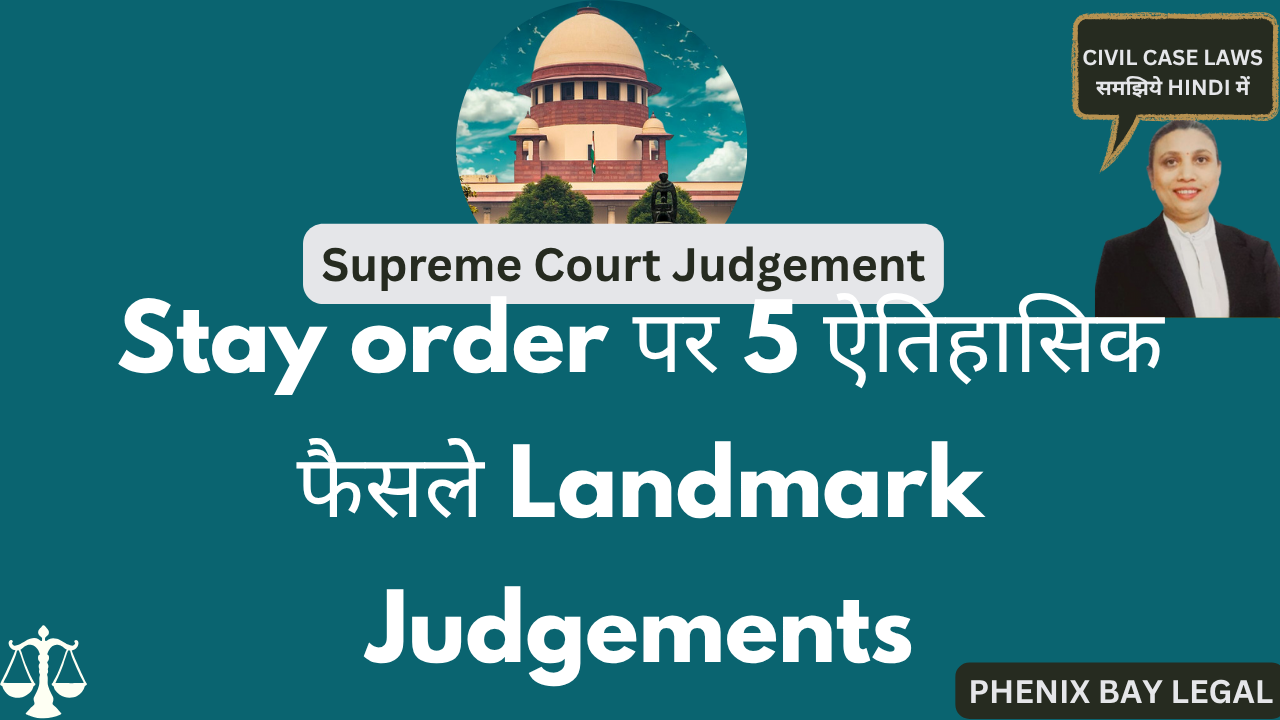
Landmark Judgement on Injunction
In civil, commercial, or even family disputes. But when is a simple injunction suit enough? When do you need to add a declaration of title? And how do courts balance urgency vs evidence in interim relief?
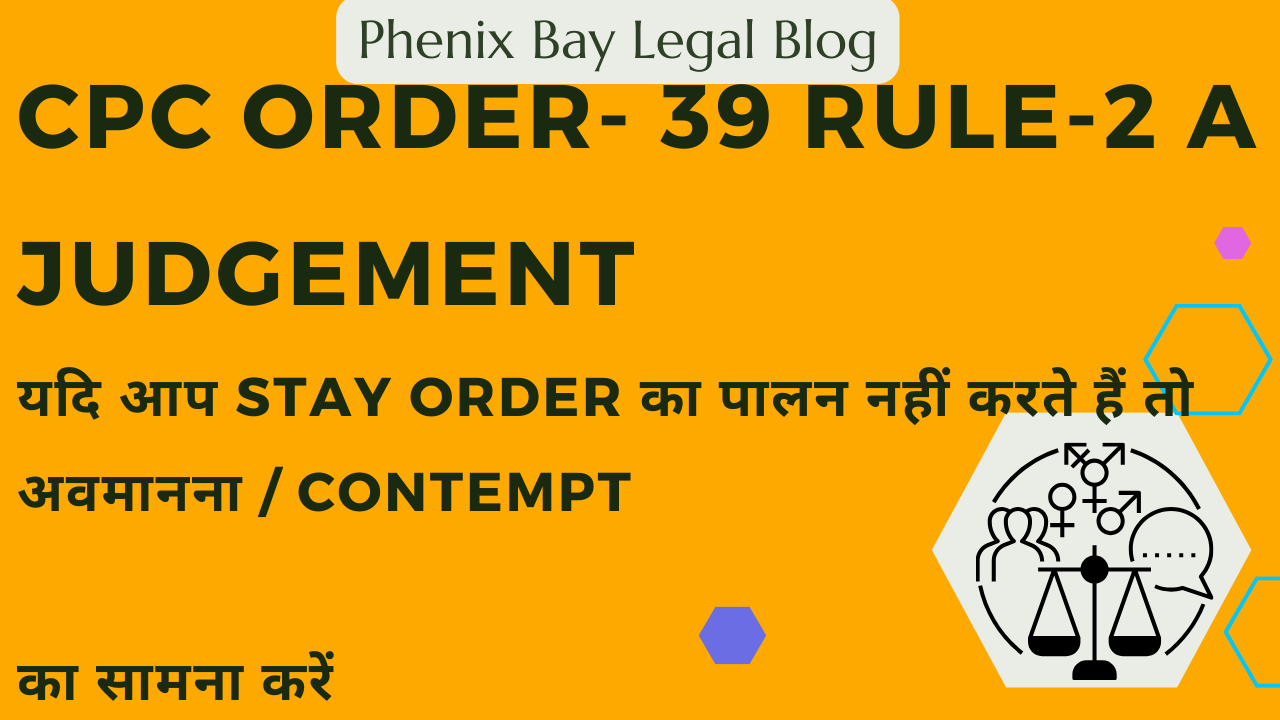
Case Analysis: Stay Order Violation and Contempt of Court by Supreme Court of India
Giving an undertaking to the court is equivalent to an order of injunction—any violation invites contempt proceedings.Injunction orders remain valid until formally vacated by a court—violation before vacation can lead to punishment.
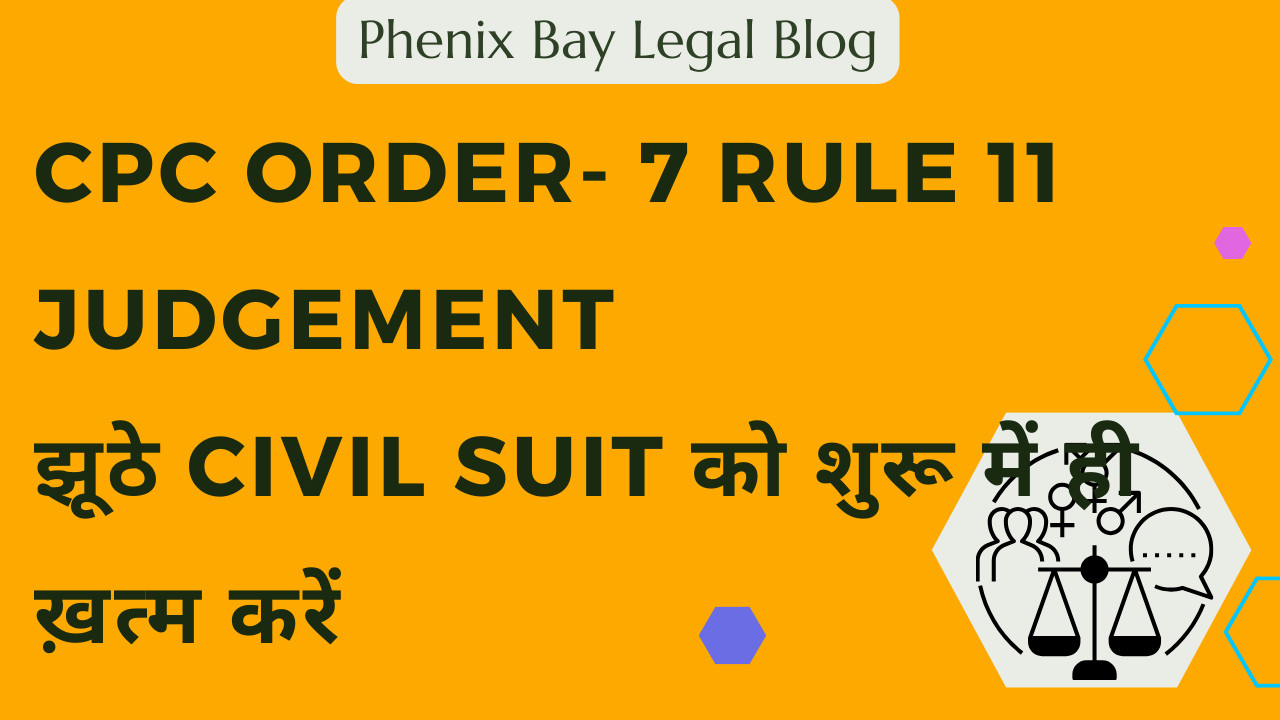
Order 7 Rule 11 of CPC Explanation in Land Mark Judgement
The Sopan Sukhdeo Sable judgment is a landmark ruling that reinforces Order 7 Rule 11 of CPC as a safeguard against frivolous and legally untenable claims. It highlights the importance of examining only the plaint’s contents to decide whether a suit should be dismissed at the threshold.
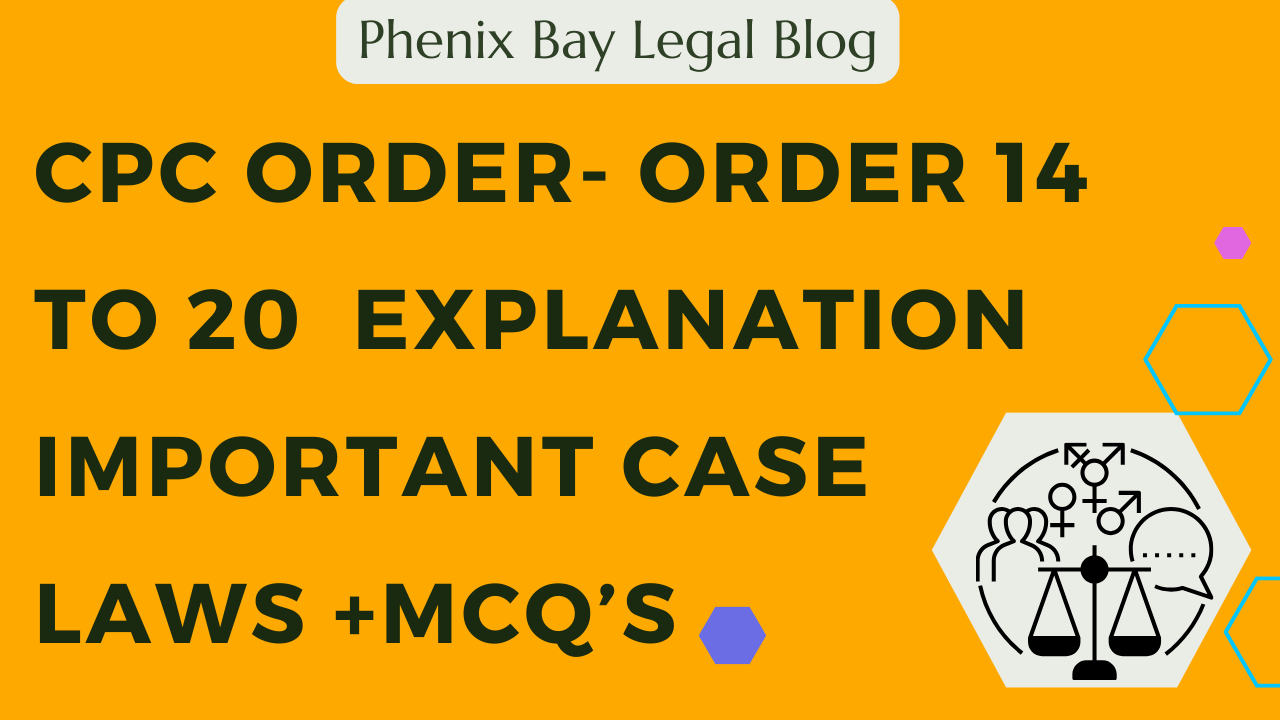
CPC Order- Order 14 to 20 Explanation IMPORTANT CASE LAWS +MCQ’S for Judiciary Exam Preparation
CPC Order- Order 14 to 20 Explanation IMPORTANT CASE LAWS +MCQ’S for Judiciary Exam Preparation

Supreme Court ImportanatJudgement - Landlord Tenant Bonafide need
This case involves a dispute over eviction of a tenant based on the bona fide need of the landlord. The Supreme Court ruled in favor of the landlord, reversing the High Court's decision. Below is a detailed breakdown of the judgment with relevant legal principles, precedents, and reasoning.